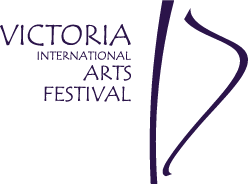A stunning performance …
It hit the ground running, with passion and panache. It was one of the most exciting and wonderful programmes and the audience was captivated and enthralled by the beauty of the performance. Conducted by the experienced and highly intelligent Joseph Vella, the Malta Philharmonic Orchestra delivered a performance of a very high calibre. The works chosen for the evening’s programme contained a few of the more representative works of the Nationalist School of the late Romantic Period, and with such music very little can go wrong with regard to audience reception.
Smetana’s hauntingly beautiful Vltava (The Moldau) from his symphonic poem Má Vlast op. 62 set the mood for the evening. Nostalgic yet never sentimentalized, it flowed uninhibited, ebbing and swelling with the tide of passion that drove it forward. Wieniawski’s Violin Concert in D Minor no. 2 op. 22 is not for the faint-hearted and Dejan Bogdanovich dazzled the audience with his brilliant technique and equally profound interpretation of the quieter moments, most evident in the lovely second movement. A work that is almost logical in structure yet with moments of spontaneous outbursts very typical of Romantic works, it was tackled with rigour, discipline and enjoyment, both by the soloist and the orchestra, the latter providing a very solid framework against the scintillating passages on the solo violin. Balance was acutely observed and there was no pianissimo that was inaudible. The thunderous applause that greeted the final chords of the work was a fitting testimony to the appreciation of a spellbound audience.
Tchaikovsky is unbeatable when it comes to melodic inventiveness. His opus bristles with wonderful tunes that are as singable as they are inimitable. His famous Pas de deux from the Nutcracker Ballet op. 71 is enough to melt all the icicles in Siberia. Warm, mellow, utterly beautiful, the Malta Philharmonic Orchestra rose remarkably to the occasion and delivered a ravishing performance that thrilled with its magic.
The last piece on the programme was Dvořák’s Symphony in G no. 8 op. 88. It is a massive work, with an architectonic structure that looks forward to the late Brahms. The work abounds in structural symmetries and subtleties, which reveal themselves once one becomes familiar with its charming Czech-rooted melodies and rhythms. Organization of this calibre is the handiwork of a master composer in complete control of what he wants to say and how to say it. Under the masterful direction of Joseph Vella, the orchestra delivered a most impressive performance of a work that, despite its undoubted beauty, is not as frequently performed as the more well-known Symphony no. 9. Whether coaxing refined pianissimo textures or engaging the orchestra to produce full-bodied sounds, the dynamic range and tone were wide and deep. There was an equitable poise between the intellectual and the emotional – an uneasy balance whichever way one looks at it.
The resounding applause at the end was an eloquent show of sincere appreciation from an audience that knew it had been privileged to enjoy such a wonderful experience.




